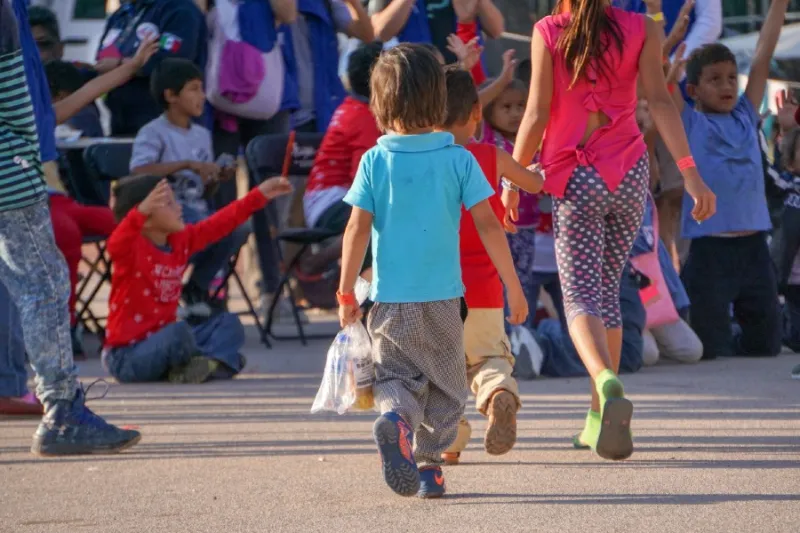
Washington D.C., Jun 24, 2021 / 13:30 pm (CNA).
The U.S. bishops’ conference on Thursday emphasized the need to welcome immigrants after the Supreme Court resolved a challenge to the Trump administration’s “Remain in Mexico” policy.
“Going forward, we must work as a nation to welcome the newcomer and respond to those in need with Christ-like compassion,” stated Bishop Mario Dorsonville, auxiliary bishop of Washington and chair of the U.S. bishops’ migration committee, on Thursday.
Bishop Dorsonville issued the statement in response to the Supreme Court’s ruling in Mayorkas v. Innovation Law Lab, a challenge to the Trump administration’s Migrant Protection Protocols.
The protocols required non-Mexican asylum-seekers at the U.S.-Mexico border to remain in Mexico while their requests were adjudicated in immigration court. Advocates argued that the policy, termed the “Remain in Mexico” policy, subjected immigrants with legitimate asylum claims to long periods of waiting in poor conditions.
The Trump administration implemented the protocols in January 2019. While they first applied to asylum-seekers at the San Ysidro border crossing, the policy was since expanded to include entries across the entire U.S.-Mexico border. Asylum seekers would receive a notice to appear in immigration court and could re-enter the U.S. for that court date; to stay in the U.S., they had to prove a fear of persecution or torture in Mexico.
Unaccompanied child migrants and those with known physical or mental health problems were exempted from the policy, among others.
Both a federal district court and the Ninth Circuit Court of Appeals ruled against the Trump administration; the Ninth Circuit court held that the Department of Homeland Security drafted the rule “without notice-and-comment rulemaking.”
The Biden administration repealed the policy on June 1, 2021. Following that decision, the U.S. Supreme Court ruled on Monday that a lower court’s ruling in the case was “moot,” and dismissed the case.
“We welcome the final resolution of this case,” Bishop Dorsonville said, while adding that the ruling “should not be seen as legal vindication” of the Migrant Protection Protocols, “which remains contrary to our laws and morals.”
He also called for an end to “the misuse of Title 42 to turn away vulnerable asylum seekers,” as well as actions “addressing the root causes of migration, and reforming our bogged down immigration system.”
“It is possible to do these things while respecting the rule of law; we need only commit ourselves to the task,” he said.
The Biden administration has ordered a review of Title 42, the policy closing entry to asylum-seekers on the U.S.-Mexico border due to the COVID-19 pandemic. The administration has not ended the policy, however.
Axios has reported that the White House is considering lifting the policy at the end of July. On Monday, White House press secretary Jen Psaki said that “when it comes to Title 42, there’s been no change.”
If you value the news and views Catholic World Report provides, please consider donating to support our efforts. Your contribution will help us continue to make CWR available to all readers worldwide for free, without a subscription. Thank you for your generosity!
Click here for more information on donating to CWR. Click here to sign up for our newsletter.





Leave a Reply